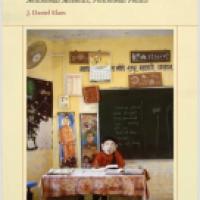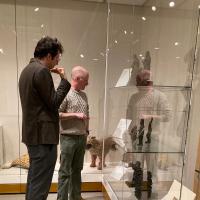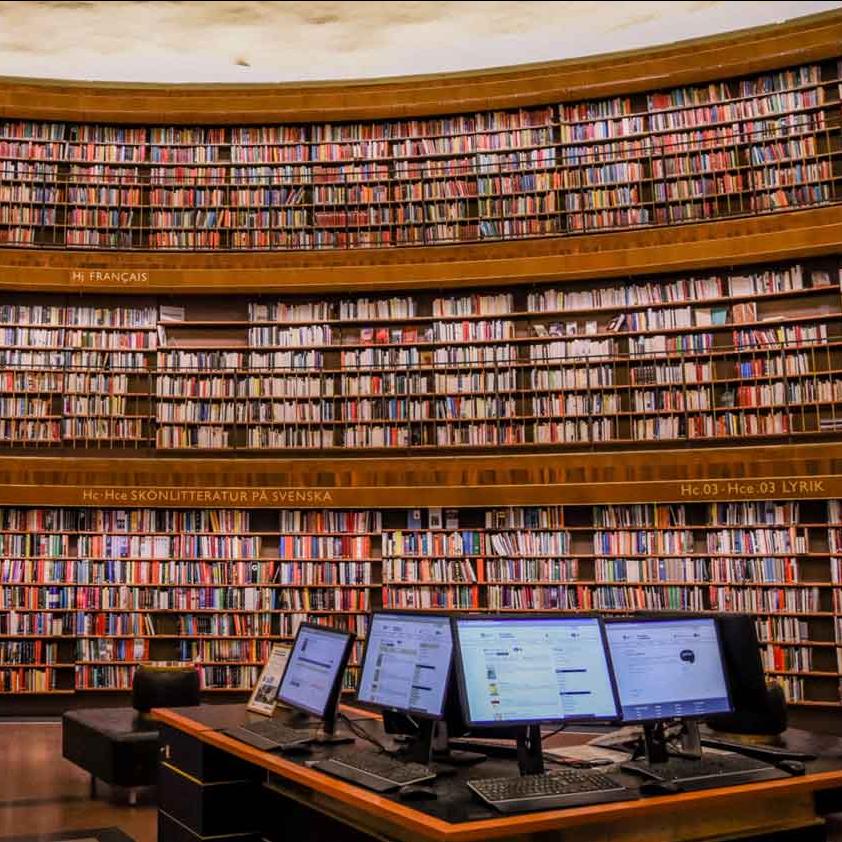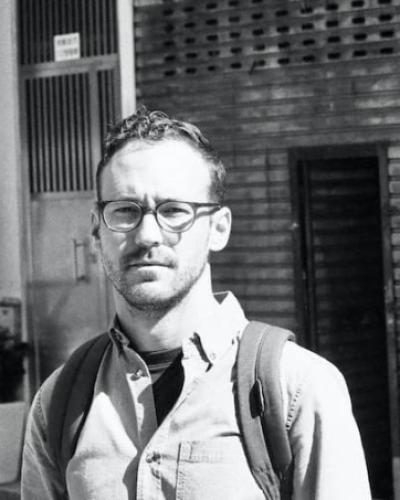This iteration of the Fellows' Q&A series features J. Daniel Elam, assistant professor in the Department of Comparative Literature at the University of Hong Kong and 2018-19 "Authority" Fellow. His new book, World Literature for the Wretched of the Earth: Anticolonial Aesthetics, Postcolonial Politics, was just released by Fordham University Press on December 1, 2020.
Big Picture
The book is about anticolonialism and comparative literature in the early twentieth century. In the 1920s and 1930s, and in the face of increasingly violent imperialism and the rise of fascism, these two seemingly separate conversations are imagining “the world” and what its aesthetic forms might be. On one hand, this was about an aesthetic world after colonialism; on the other, it was to imagine a “world literature” that might survive fascism. But these anticolonial thinkers and comparative literary critics (many of whom were German Jews writing in exile) were not convinced they would see this “world.” So, one of the main questions that drives the book is: what does it mean to act on behalf of a world we won’t live to see? What does it mean to act on behalf of an impossibility – a world without colonialism? These thinkers refused to be optimistic, but they also refused to despair.
The bulk of the book focuses on South Asian anticolonial thought – Lala Har Dayal, B.R. Ambedkar, M.K. Gandhi, and Bhagat Singh – and treats anti-imperial writing as philosophical and literary critique. I was drawn to these thinkers’ descriptions of their own reading practices – this is where they discuss how to create egalitarian communities in the present. Reading, and reading with others, became a primary way to describe this future utopia in the meantime.
In Particular
Elam-Cover.jpg
Alt Text
World Literature for the Wretched of the Earth coverThe question that frames the book is: what is the relationship between the “world” of Erich Auerbach’s “world literature” and the “earth” of Frantz Fanon’s The Wretched of the Earth? To me, the importance of this shared global vocabulary is its demand for an entirely new world, not simply that parts of it be decolonized or that certain literatures get studied. Thinking anticolonialism and comparative literature together highlights a long, intertwined, genealogy of egalitarianism.
The anticolonial thinkers in the book are known, especially in South Asia, for being expert anticolonial activists, or for being the masterful “fathers” of independent India. Of course, these activists were loudly protesting against the British Empire, but their writings attest to an equally important aspect of their work: the necessity of small, ephemeral, inconsequential acts. Treating anticolonialism as literary and political critique is my way of drawing our attention away from the spectacle of bomb-throwing and hunger-striking. Instead, we might focus on the seemingly meaningless ways that anticolonial thinkers took care of themselves and their friends, knowing that they would not live to see the end of colonial oppression.
Discovery
The book relies on a lot of archival research, and most of the “anticolonial theories of reading” the book describes are cobbled together from private correspondence and unpublished writings. What struck me first – and what catalyzed the writing of the book – was how clear-eyed anticolonial thinkers and comparative literary critics were about the success of their work. They knew they would not live to see a world without colonialism or fascism (the end of World War II, or the wave of national independences, hardly meant that these forces disappeared). They knew writing on behalf of this utopian world was a necessary and impossible task, but that is precisely what freed them to think even more grandly about what that world might look like.
They knew writing on behalf of this utopian world was a necessary and impossible task, but that is precisely what freed them to think even more grandly about what that world might look like.
My next book is about my uncle, who died from HIV/AIDS in 1993. It is a completely unrelated book. But in my initial interviews with early AIDS activists, I was surprised by a common refrain: AIDS activism in the late 1980s and early 1990s was about demanding medicine that you would likely not live to see. And it was also about taking care of friends whose deaths were immanent.
In other words, there is a history of activism across the twentieth century that is about demanding a utopian world whose arrival will be long after you are dead. Rather than despair about losing the battle, activists took up the chance to be even more creative, even more daring, even more imaginative.
Fellowship
The book is about how anticolonial thinkers not only refused imperial authority, but also refused authority altogether – especially their own. During the year on authority, I was busy theorizing antiauthoritarianism. Our discussions at the Society were about how structures of authority were maintained and upheld (Kate Manne’s work on misogyny is outstanding for describing this; Jessica Ratcliff’s work on British imperial museums offers a brilliant image of colonial excess), but also foregrounding alternative forms of political community that disavowed, negotiated, or evaded authorities (Dehanza Rogers’s work captures these types of negotiations powerfully in the context of racist violence against Black girls; Klaus Yamamoto-Hammering’s ethnographic writing does the same in the context of an increasingly conservative Japan). These discussions pushed me to think more rigorously about what I meant when I argue that anticolonialism is about “disavowing authority” – whose authority? for whom? at whose expense? I finished both drafts of the manuscript while I was at Cornell, I hope that my colleagues can see the impact of our conversations and their incisive questions.







